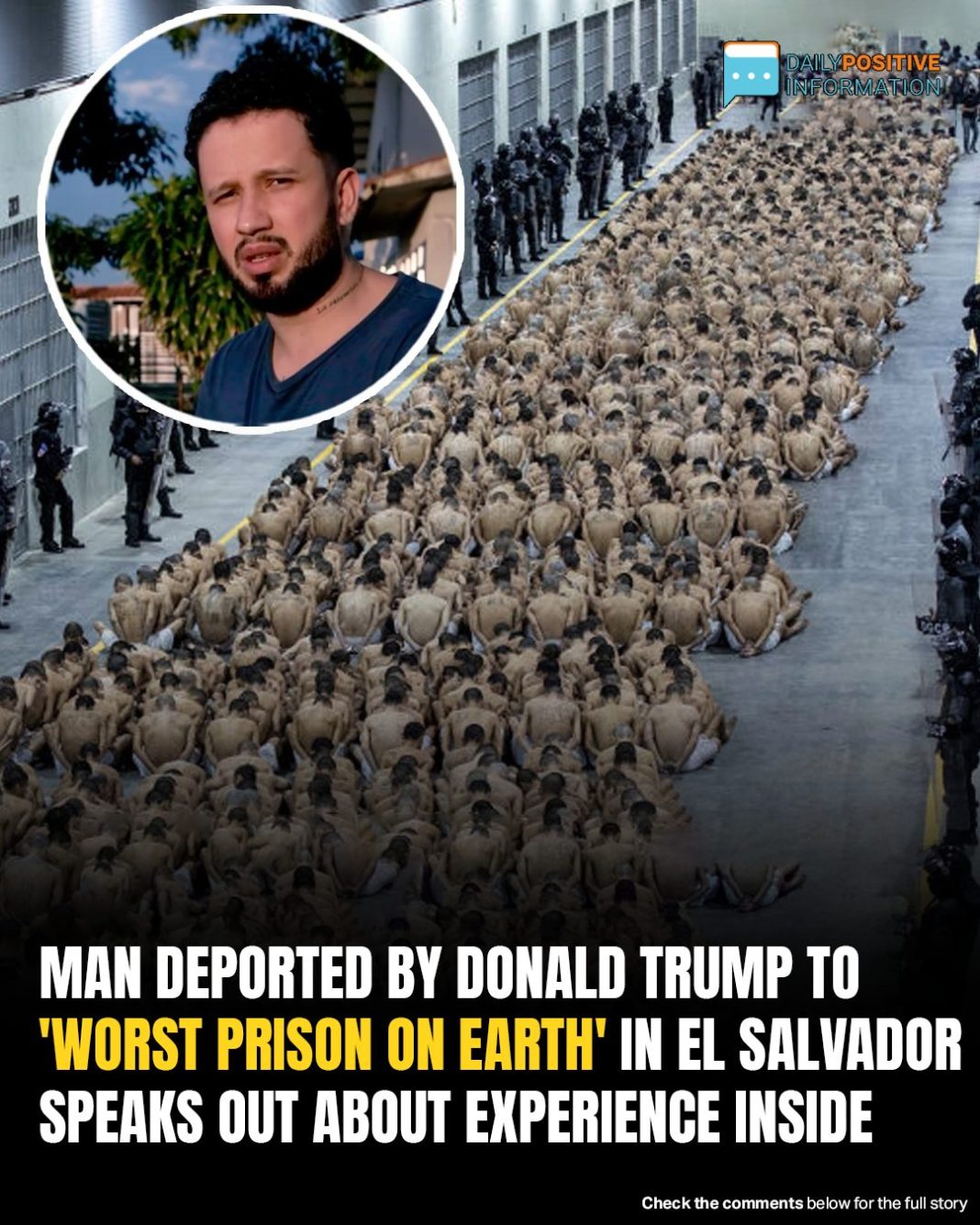Arturo Suarez and the Brutal Reality of El Salvador’s Mega-Prison
In recent years, the topic of immigration and its associated challenges has gained significant attention across the globe. Among the most striking stories is that of Arturo Suarez, a 34-year-old aspiring singer whose life took a drastic turn due to the stringent immigration policies implemented in the United States. Suarez, arrested in March while shooting a music video in North Carolina, found himself at the intersection of a complicated immigration system and the grim realities of El Salvador’s penal system.
Despite having no criminal history across the four countries he had called home, Suarez was wrongfully accused of being affiliated with the notorious Venezuelan gang, Tren de Aragua. This accusation was not only shocking but also deeply troubling, as it underlines the pervasive issue of racial and ethnic profiling. The basis for this accusation rested solely on his appearance, specifically the 33 tattoos that adorned his body. Such misidentifications highlight the dangers of profiling, especially in a context where the U.S. immigration system has ramped up its crackdown on suspected gang members, particularly during the Trump administration. This punitive approach has disproportionately affected individuals who bear tattoos or fit within certain ethnic categories, often leading to devastating consequences for those unjustly targeted.
Following his arrest, Suarez was one of a staggering 250 Venezuelan men deported to El Salvador. Upon his arrival, he was sent directly to the infamous Centro de Confinamiento del Terrorismo (CECOT), a mega-prison that has become synonymous with the harsh realities of Salvadoran incarceration. Opened in 2023 under the administration of President Nayib Bukele, CECOT is touted as the largest maximum-security prison in all of Latin America, designed to accommodate up to 40,000 inmates at a time. The prison was constructed as part of Bukele’s aggressive campaign against gang violence, which has plagued El Salvador for decades. However, this approach has raised questions about the efficacy and humanity of such measures, particularly as the prison system is intended to serve as a means of rehabilitation rather than mere containment.
While the government presents CECOT as a model of security and order, numerous human rights organizations and advocates have criticized the facility for its inhumane conditions. Reports have emerged detailing overcrowded cells, insufficient access to medical care, and a lack of basic amenities that are essential for human dignity. For instance, a report by the Human Rights Watch highlighted instances where inmates were deprived of adequate food and clean water, conditions that breed disease and despair. This raises serious concerns about the treatment of individuals like Suarez, who find themselves in a system that does not prioritize justice or rehabilitation, but instead fosters an environment of despair and fear. The lack of oversight and accountability within these institutions further exacerbates the situation, leaving inmates vulnerable to abuse and neglect.
Furthermore, the situation in CECOT serves as a microcosm of the broader challenges within the Salvadoran justice system. Many inmates are detained without trial, often based on flimsy evidence or mere suspicion of gang affiliation. According to a report by Amnesty International, over 90% of the detainees in CECOT are held under such conditions. This has led to widespread criticism from international observers who argue that such practices violate fundamental human rights and due process. In a country grappling with rampant violence and social instability, the prison system often exacerbates the very issues it aims to resolve. The punitive measures enacted by the government have not only failed to curb gang violence but have also contributed to a culture of fear and mistrust among the populace.
Suarez’s story is a poignant reminder of the personal toll that immigration policies can have on individual lives. His aspirations of becoming a successful singer have been overshadowed by the trauma of wrongful incarceration. Families of deported individuals often endure long-lasting emotional and financial distress, as loved ones are suddenly torn away from their homes and communities. As he navigates the harsh reality of life inside CECOT, one cannot help but reflect on the implications of such policies on families and communities. The narrative surrounding immigration is complex and multifaceted, often entangled with issues of race, identity, and socio-economic status. For many, the American Dream has become a nightmare, riddled with uncertainty and despair.
In conclusion, the harrowing experiences of individuals like Arturo Suarez shine a light on the urgent need for reform within both the immigration and penal systems. The stories of countless others who have faced similar fates underscore the critical importance of a fair and just legal process. As public awareness of these issues grows, it is essential that we advocate for humane treatment and justice for all individuals, regardless of their background. The plight of Suarez serves as a clarion call to policymakers and society alike to reconsider the effectiveness and morality of current practices that often prioritize punitive measures over rehabilitation and compassion. Only through a concerted effort to address these systemic issues can we hope to create a more equitable society that values human dignity and justice for all.

















